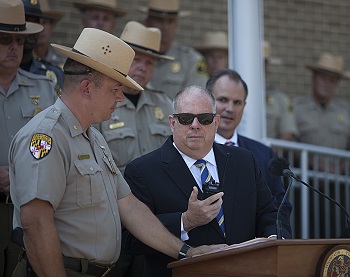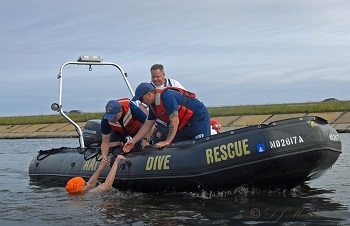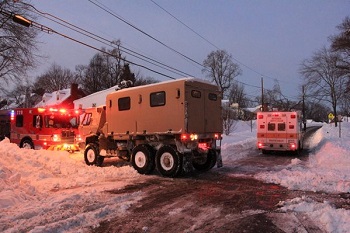
Maryland's new interoperable public safety radio system, known as Maryland FiRST, has been a great success in providing mission critical, interoperable, voice communications to Maryland's first responders. With 100% of the system built out handling over 3 million Push-To-Talks per month, there are over 32,000 first responders on the system as primary users with another 90,000 as interoperable users, including over 122,000 TDMA compatible radios representing 130 State agencies, local governments, Federal agencies and neighboring State territories.
MD FiRST Radio Coverage Form
This form is used to report specific locations of coverage issues on MD
Any questions or suggestions regarding the content on this website, or questions regarding the Interoperability project may be directed to
mdfirsthelpdesk@maryland.gov.

Primary Users - A primary user agency is approved by the Radio Control Board and utilizes Maryland FiRST as their primary radio communications system to conduct daily operations. A primary user agency can be any Maryland State, county or local public safety agency.

Limited Primary Users - A limited primary user agency is one which uses their own separate radio communications system for their primary daily operations. After approval by the Radio Control Board, the limited primary user agency is granted resources on Maryland FiRST on a limited basis. In the event of a major disruption to the agency’s home system, the limited primary user agency can “failover” to the Maryland FiRST system and conduct their primary radio communications on the system until such time as their home system is restored. A limited primary user agency can be any Maryland State, county, or local public safety agency which is not already a primary user.
Interoperability Users - An interoperablility user agency is approved by the Radio Control Board and utilizes Maryland FiRST for interoperable communications during special events, emergencies, mutual aid and joint operation. They are authorized to use MD Call/TAC or MD Marine Call/TAC talkgroups and to enter into talkgroup sharing agreements with primary user agencies. Interoperable user agencies can be federal, neighboring states, county or local public safety agencies.
